第73章
Bad taste in language may take any of four forms:
(1) The misuse of compound words. Lycophron, for instance, talks of the 'many visaged heaven' above the 'giant-crested earth', and again the 'strait-pathed shore'; and Gorgias of the 'pauper-poet flatterer' and 'oath-breaking and over-oath-keeping'. Alcidamas uses such expressions as 'the soul filling with rage and face becoming flame-flushed', and 'he thought their enthusiasm would be issue-fraught' and 'issue-fraught he made the persuasion of his words', and 'sombre-hued is the floor of the sea'.The way all these words are compounded makes them, we feel, fit for verse only. This, then, is one form in which bad taste is shown.
(2) Another is the employment of strange words. For instance, Lycophron talks of 'the prodigious Xerxes' and 'spoliative Sciron';
Alcidamas of 'a toy for poetry' and 'the witlessness of nature', and says 'whetted with the unmitigated temper of his spirit'.
(3) A third form is the use of long, unseasonable, or frequent epithets. It is appropriate enough for a poet to talk of 'white milk', in prose such epithets are sometimes lacking in appropriateness or, when spread too thickly, plainly reveal the author turning his prose into poetry. Of course we must use some epithets, since they lift our style above the usual level and give it an air of distinction. But we must aim at the due mean, or the result will be worse than if we took no trouble at all; we shall get something actually bad instead of something merely not good. That is why the epithets of Alcidamas seem so tasteless; he does not use them as the seasoning of the meat, but as the meat itself, so numerous and swollen and aggressive are they. For instance, he does not say 'sweat', but 'the moist sweat'; not 'to the Isthmian games', but 'to the world-concourse of the Isthmian games'; not 'laws', but 'the laws that are monarchs of states'; not 'at a run', but 'his heart impelling him to speed of foot'; not 'a school of the Muses', but 'Nature's school of the Muses had he inherited'; and so 'frowning care of heart', and 'achiever' not of 'popularity' but of 'universal popularity', and 'dispenser of pleasure to his audience', and 'he concealed it' not 'with boughs' but 'with boughs of the forest trees', and 'he clothed' not 'his body' but 'his body's nakedness', and 'his soul's desire was counter imitative' (this's at one and the same time a compound and an epithet, so that it seems a poet's effort), and 'so extravagant the excess of his wickedness'. We thus see how the inappropriateness of such poetical language imports absurdity and tastelessness into speeches, as well as the obscurity that comes from all this verbosity-for when the sense is plain, you only obscure and spoil its clearness by piling up words.
The ordinary use of compound words is where there is no term for a thing and some compound can be easily formed, like 'pastime' (chronotribein); but if this is much done, the prose character disappears entirely. We now see why the language of compounds is just the thing for writers of dithyrambs, who love sonorous noises; strange words for writers of epic poetry, which is a proud and stately affair; and metaphor for iambic verse, the metre which (as has been already' said) is widely used to-day.
(4) There remains the fourth region in which bad taste may be shown, metaphor. Metaphors like other things may be inappropriate. Some are so because they are ridiculous; they are indeed used by comic as well as tragic poets. Others are too grand and theatrical; and these, if they are far-fetched, may also be obscure. For instance, Gorgias talks of 'events that are green and full of sap', and says 'foul was the deed you sowed and evil the harvest you reaped'. That is too much like poetry. Alcidamas, again, called philosophy 'a fortress that threatens the power of law', and the Odyssey 'a goodly looking-glass of human life',' talked about 'offering no such toy to poetry': all these expressions fail, for the reasons given, to carry the hearer with them. The address of Gorgias to the swallow, when she had let her droppings fall on him as she flew overhead, is in the best tragic manner. He said, 'Nay, shame, O Philomela'.
Considering her as a bird, you could not call her act shameful; considering her as a girl, you could; and so it was a good gibe to address her as what she was once and not as what she is.